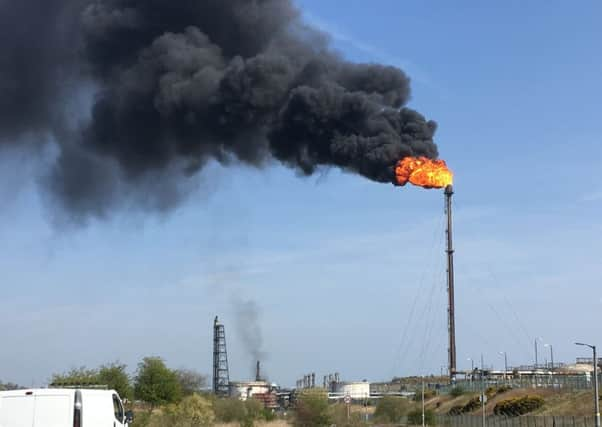Ethelyne plant commits to long-term investment in Fife


The re-assurance came as Fife Council kick-started the process to stage an independent inquiry into the long-term viability of closing the petro-checmical plant.
The local authority has written to the Scottish Government asking it to lead the study.
Advertisement
Hide AdAdvertisement
Hide AdIts letter has landed on the desk of Roseanna Cunningham, Cabinet Secretary for environment, climate change and land reform.
But bosses of the giant ExxonMobil complex insist they are committed to Fife.
The plant came under renewed criticism after elevated flaring last Friday sparked more concerns among the community.
You may also be interested in:
That followed a major six-day flaring over thew Easter Bank Holiday which prompted a record 900 calls to the pollution hotline run by the Scottish Environmental Protection Agency (SEPA) – an incident which led to a public meeting, and a decision by the local authority to kick-start an inquiry which, could, ultimately, lead to the plant’s decommissioning..
Advertisement
Hide AdAdvertisement
Hide AdJacob McAlister, plant manager at FEP said: “We fully appreciate the concerns that have been raised and take them on board, but we would like to stress that FEP is strictly regulated, and our team is highly-experienced.
“Since operations began, the plant has been robustly maintained and upgraded through our ongoing and well-established investment programme.
“We are committed to further long-term investment in the plant, which is an integral part of Scotland’s energy infrastructure and a major employer in the Fife region, contributing more than £32 million annually to the Scottish economy.”
Mr McAlister said FEP submitted its key Best Available Techniques (BAT) report to SEPA in April – it sets out a programme of technological and process actions to further reduce the frequency of high-volume elevated flaring and its potential impact on local communities.
Advertisement
Hide AdAdvertisement
Hide AdHe added: “Following best practice guidance from independent consultants AECOM and RMP Acoustics, the proposals exceed specifications in UK legislation and include an enhanced elevated flare design, training improvements, and the introduction of new processes and technologies. In addition, options will be evaluated to increase the capacity of, and access to, ground level flares that have the potential to minimise community impact.
“We are taking the right and responsible steps to further minimise both the frequency and impact of events, and the BAT report provides a clear pathway to achieve this.
“Working with SEPA, we will bring this to reality.”
He underlined that flaring remained an essential safety mechanism for the plant.
“While we all want to reduce flaring, we cannot emphasise enough that it is a precautionary measure to ensure the safety of our workers and that of local communities,” he added. “As a responsible operator, we work with the regulatory authorities to ensure the plant continues to operate safely and efficiently within the guidelines.”